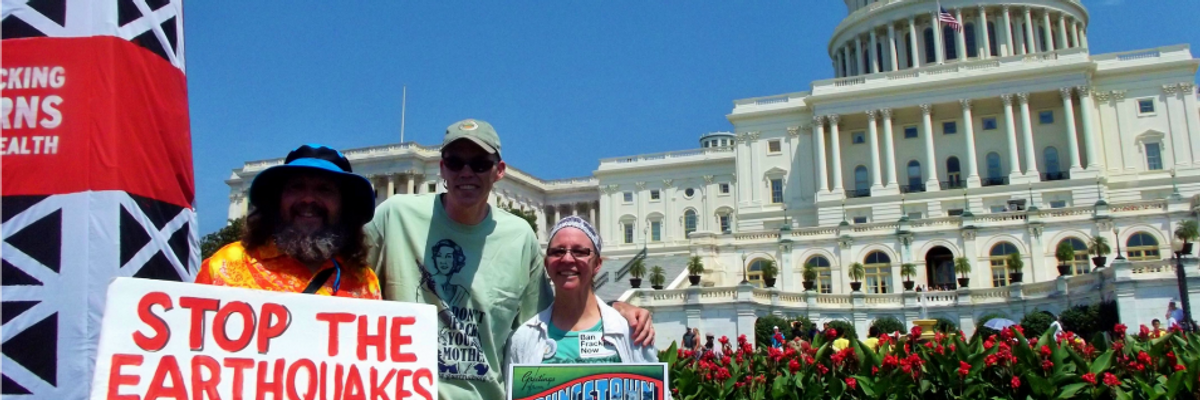Kansas officials have for the first time publicly linked fracking activity--specifically, the injection of saltwater into wastewater wells--with a dramatic uptick in earthquakes across the state.
The number of earthquakes in Kansas went from none in 2012 to more than 120 in 2014, the Kansas Geological Survey has said. Early Monday, a spate of four earthquakes sent tremors through southern Kansas and northern Oklahoma, registering between 2.7 and 4.1 on the Richter scale.
"We can say there is a strong correlation between the disposal of saltwater and the earthquakes," Rick Miller, geophysicist and senior scientist for the Kansas Geological Survey, told the Lawrence Journal-World. During fracking operations, a mixture of saltwater and chemicals is used to break apart tight underground rock formations to release oil and gas, after which the fluids are injected deep into disposal wells.
Within the past year, scientists in Ohio, Texas, and Oklahoma have all linked increased seismic activity with fracking operations.
In July 2014, the U.S. Geological Survey and the Oklahoma Geological Survey said that "a likely contributing factor to the increase in earthquakes is triggering by wastewater injected into deep geologic formations. This phenomenon is known as injection-induced seismicity, which has been documented for nearly half a century, with new cases identified recently in Arkansas, Ohio, Texas and Colorado."
Environmentalists in Kansas expressed hope that their state with follow in the steps of New York, New Hampshire, Maryland, and numerous local governments nationwide that have banned fracking, even temporarily.
"If the government and the Kansas Corporation Commission care about the people of Kansas and the damages, they will order a moratorium," Joe Spease, chairman of the Kansas Sierra Club's fracking committee and owner of a renewable energy company, told the Journal-World. "If they only care about the profits of the oil and gas [industry], it will be business as usual. I hope that is not the case."

